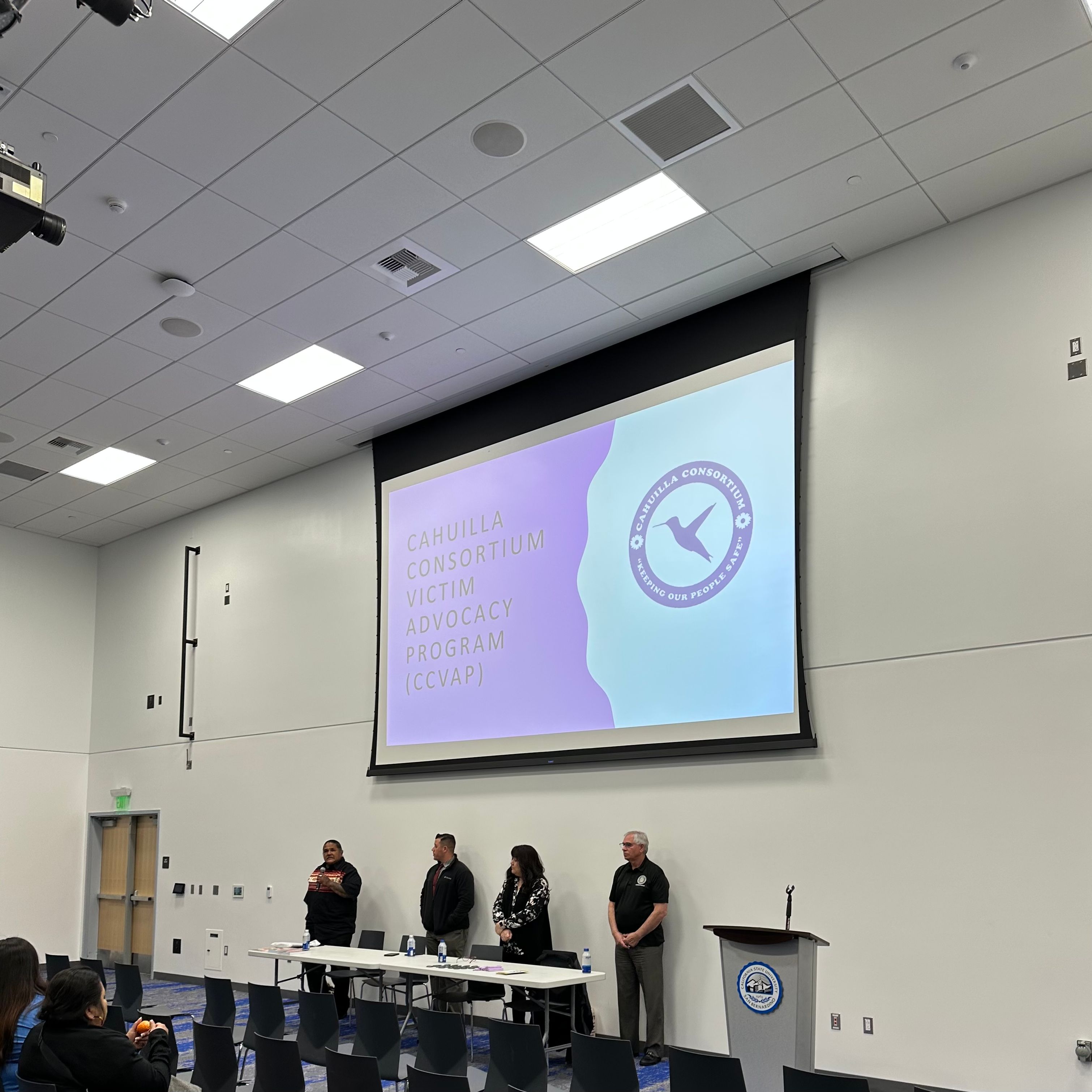Native American / Indigenous Education Summit

Cahuilla Consortium was honored to be invited to the White House Initiative Native American/Indigenous Education Summit at Cal State San Bernardino on Saturday March 23rd hosted by the California Indian Nations College (CINC). The purpose of this summit was to highlight issues within the higher education system in terms of enrollment accessibility while also discussing topics such as scholarships, basic needs, Native grad school experiences, Native arts, language immersion, and student experiences in reconnecting with their Indigenous roots. CINC is in the process of becoming the first accredited, two-year tribal college in California.
Elders Ernest Siva and Kim Marcus opened the summit with a traditional blessing and land acknowledgment. This was my first event as CCVAP’s new Outreach, Prevention, and Education Coordinator and it was such an awesome experience seeing a traditional blessing take place! Several welcome speeches were given by executives at various institutions including one from Senator Alex Padilla! Dr. Sandy-Kewanhaptewa-Dixon (Vice President of CINC) shared an incredibly heartfelt story from her childhood and her experiences with racism through K-12 all the way into her career in academia. The introductory speeches captured many facets of Indigenous student experiences within higher education which evoked quite an emotional response from the room. Hearing the goals of the California Indian Nations College was both motivating and empowering while really highlighting the commitment to Native/Indigenous higher education.
When time came to visit breakout rooms, there were an incredibly diverse range of topics to choose from:
I attended “Student Centers/Basic Needs Center” for my first breakout group where Nathan Estrada, student at CSUSB, shared his life story and the hurdles he overcame to pursue his degree. He highlighted the services provided at the First People’s Center CSUSB covering emergent needs such as printer access, a study center, charging ports, and a safe space to foster community. Melissa Hernandez, Dean of Student Affairs and member of CINC, followed Nathan’s story up with statistics that reinforce needs of Native/Indigenous students in higher education. The CINC support center focuses on needs based in food insecurity (65.8% of students reported needing food assistance), emergency shelter and long-term housing (43.8% of students reported needing emergency housing), and other various tribal, state, and county services. Ms. Hernandez highlighted Cahuilla Consortium’s services in her presentation as well which was great to see!
For the second breakout group, I attended “Native Arts in Higher Education” presented by Terria Smith (Editor of News by Native California) and Emily Clarke (Cahuilla poet and UCR Grad). Emily highlighted many pressing issues regarding Indigenous studies in higher education settings including the creation of a monolith of Indigenous people and their experiences. She also shared an exceptionally profound original poem about this perceived monolith of experiences. Terria shared information about the origins of HeyDay Publishing and how News by Native California came to be. I really enjoyed having the various issues of News by Native California for viewing and even decided to start subscription to the magazine myself. I really enjoyed this breakout session because it emphasized the importance of art (visual, performative, written, mixed media, etc) self-expression, and culture.
Finally, the last two breakout sessions were hosted by Cahuilla Consortium and Indian Health Services highlighting “Barriers and Breaking Them: Discussions on Wellness.” CCVAP’s Director, Samantha Thornsberry, gave a passionate and heartfelt presentation about our services and the goals and objectives of our advocacy program. We’re so grateful to CSUSB, CINC, and all the wonderful attendees for giving us the opportunity to share vital information at this summit!